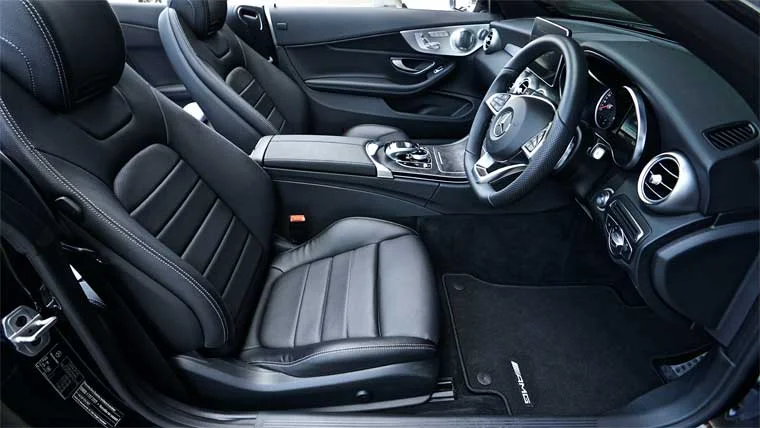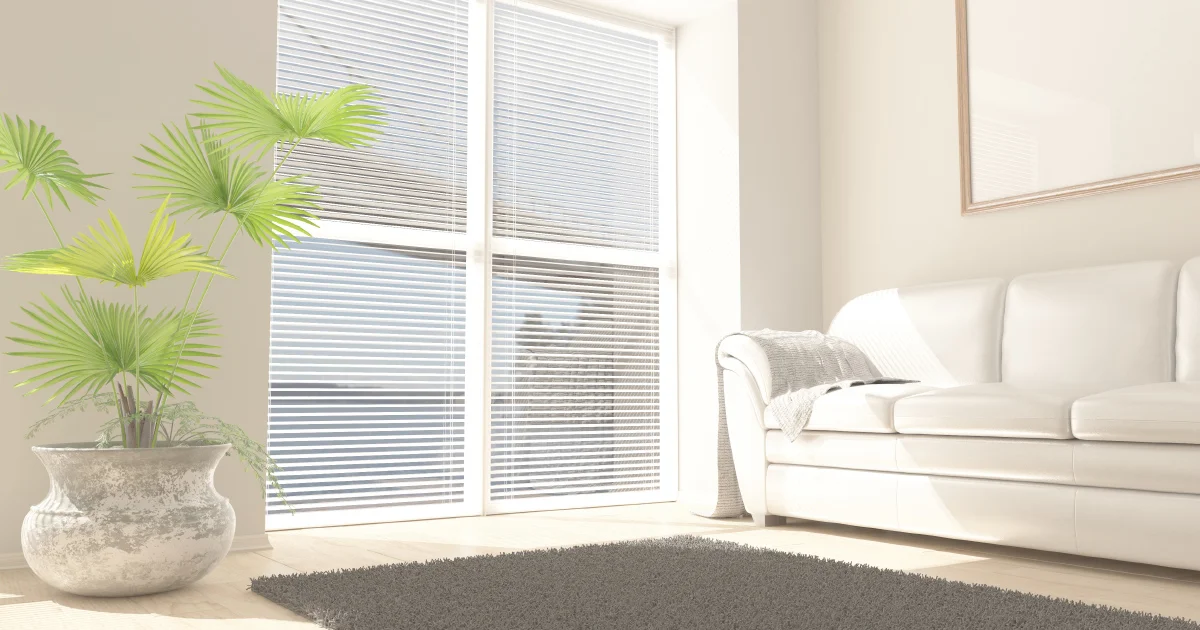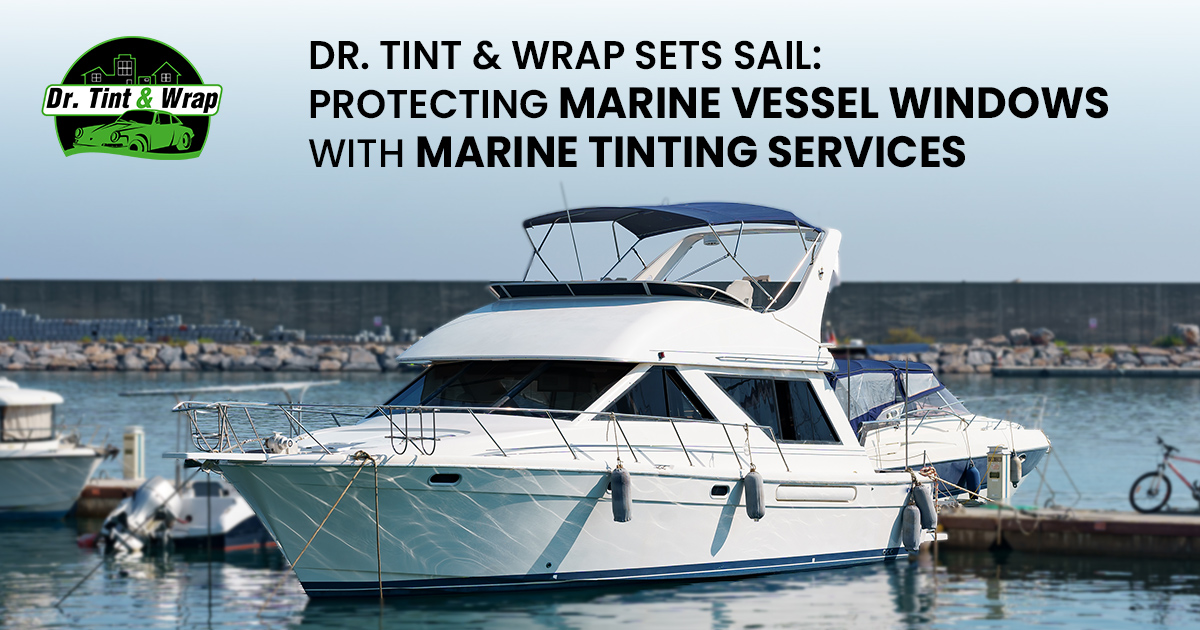
Car Window Tinting: A Boon for Leather Upholstery
14 Oct 2020, By AdminThe privacy and elegance that comes with tinting your car is priceless in the times where every step was taken in life is scrutinized and seen by everyone. So, while driving, it is always good to have your thoughts and your time to yourself, isn’t it? Along with the added benefit of privacy, tinted windows also help in protecting the interiors of the car. The investment that goes into the luxury of leather seats is something that one is acutely aware of. Now the sun is no friend to leather seats and can easily shorten the life of the seats. Discoloring them, causing cracks to appear or have the color fade, making them look worn
out.
One of the ways in which tinting your car’s windows is the protection it will provide to the elegant leather seats. Tinting windows can help control the harsh rays of the sun and also lessen how much the car heats up as well. Along with the rays of the sun, the harmful ultraviolet rays can be controlled with the power of tinting does right. Because of UV exposure, the car’s interiors can tend to get damaged.
With leather seats, the continued UV rays can cause the natural oil in the leather to dry out which causes unsightly stains. Along with UV rays and the rays of the sun, heat can also a lot of damage to leather seats. Without the added benefit of tinted windows, the heat trapped inside cars causes the leather to age faster.
Tinted windows can help keep the car cooler by creating a dark barrier between the sun and the leather seats of the car. Another problem that can worsen the impact of ultraviolet rays is any liquid or food that can fall on the leather seats with combines with these rays and can damage the upholstery of the car.
The right tint on your car windows can make all the difference to the look of your car. By making sure that the tinting has been done exceptionally can lengthen the life of the leather upholstery as well. One should always make sure that the window tinting on the cars should always be done by a professional. If not done properly, it can cause bubbles to appear in the film and also hinder sight while driving.
So, book your tinting consultation with Dr. Tint today!

Choosing the Right Window Tint for Your Home: A 2023 Guide
14 Oct 2020, By AdminWhen it comes to enhancing the comfort, energy efficiency, and privacy of your home, window tinting is an excellent choice. In 2023, homeowners are increasingly turning to home window tinting not only for its aesthetic appeal but also for its practical benefits. However, choosing the right window tint for your home can be a daunting task with so many options available. To help you make an informed decision, this blog will answer some essential "wh" questions about home window tinting.
What is Home Window Tinting?
Home window tinting is a process where a thin film is applied to the interior or exterior surface of windows. This film contains various layers designed to provide specific benefits, such as reducing heat and glare, protecting against UV rays, and enhancing privacy.
Why Should You Consider Home Window Tinting?
a.What are the Benefits?
- Energy Efficiency: Window tinting helps regulate indoor temperatures, reducing the need for excessive heating or cooling.
- UV Protection: Tinted windows block harmful UV rays, preventing fading of furniture, flooring, and artwork.
- Glare Reduction: Tinting minimizes glare on screens and surfaces, making indoor spaces more comfortable.
- Privacy: Window films offer varying degrees of privacy, allowing you to control the visibility from outside.
b.How Does It Save Money?
- Reduced Energy Bills: By maintaining stable indoor temperatures, window tinting can lead to lower heating and cooling costs.
- Increased Lifespan of Furnishings: UV protection helps extend the lifespan of your interior furnishings, reducing replacement expenses.
When is the Best Time to Install Window Tinting?
The best time to install home window tinting is during the initial construction or renovation of your home. However, it can be added to existing windows at any time. It's essential to choose a reputable installer who can assess your needs and recommend the right time for installation.
Where Should You Apply Window Tinting?
You can apply window tinting to various areas in your home, including:
- Living rooms
- Bedrooms
- Bathrooms
- Kitchen
- Home offices
- Glass doors and skylights
Consider where you need specific benefits, such as glare reduction in your office or privacy in your bedroom.
How Do You Choose the Right Window Tint?
a.What are Your Goals?
- Identify your primary objectives, whether it's energy efficiency, UV protection, privacy, or all of the above.
b.Consider the Tint Type:,
There are different types of window tints to consider:
- Reflective Tint: Offers privacy and heat reduction but can be highly reflective from the outside.
- Ceramic Tint: Provides excellent UV protection and insulation without affecting visibility.
- Decorative Tint: Adds style and privacy with various patterns and designs.
c.Evaluate Tint Darkness:
- The darkness of the tint affects the amount of light and heat it blocks. Choose a darkness level that suits your preferences and needs.
d.Consult with Professionals:
- Seek advice from experienced window tinting professionals who can guide you in selecting the right tint for your home.
In 2023, home window tinting is a smart investment for any homeowner looking to improve energy efficiency, protect their furnishings, and enhance privacy. By answering the "wh" questions about home window tinting, we hope you're now better equipped to make an informed decision. Remember to consult with experts and consider your specific goals when choosing the right window tint for your home. With the right tint, you can enjoy a more comfortable, efficient, and private living space.

The Ultimate Guide to Car Wrapping: Importance & Tips
14 Oct 2020, By AdminIf you're a car enthusiast looking to give your ride a unique and personalized touch, car wrapping can be an excellent option. Car wrapping is the process of applying a vinyl film onto the surface of a vehicle, completely transforming its appearance. It allows you to change the color, add the finishing, and even add custom graphics or designs to your car, creating a true masterpiece that reflects your style and personality. In this blog post, we will explore the world of car wrapping and how it can elevate your car enthusiast game to the next level.
Importance of Car Wrapping?
Car wrapping has become increasingly popular among car enthusiasts for several compelling reasons,
Customization - Car wrapping allows you to completely transform the appearance of your vehicle. With a wide range of colors, textures, and finishes available, you can create a unique and personalized look that reflects your style and personality. It gives you the opportunity to customize your vehicle without the permanence of a traditional paint job, making it a flexible option for those who like to change up their vehicle's appearance.
Protection - Car wraps provide a layer of protection to your car's original paint. The vinyl material used in car wraps acts as a barrier against minor scratches, chips, and fading from UV rays, helping to preserve the condition of your car's paint and keeping it looking newer for longer. This can be particularly beneficial if you want to maintain your car's resale value or lease a vehicle and want to protect it during the lease period.
Versatility - Car wraps can be used for a variety of purposes beyond just changing the color of your car. They can be used for advertising, business branding, or promoting a cause or event. Car wraps provide a cost-effective and attention-grabbing way to market your business or create awareness for a cause, as they turn your vehicle into a moving billboard that can reach a wide audience.
Reversibility - Unlike traditional paint jobs, car wraps are not permanent and can be easily removed without damaging your car's original paint. This means you can change or remove the wrap whenever you want, allowing for flexibility and versatility in your vehicle's appearance. It also means that if you're planning to sell your car or return a leased vehicle, you can remove the wrap and restore it to its original condition.
Cost-effective - Car wrapping can be a more cost-effective option compared to a traditional paint job, especially for complex designs or multiple color changes. The cost of a car wrap depends on factors such as the size of the vehicle, the type of wrap material used, and the complexity of the design. However, compared to the cost of a full repaint, car wrapping can be more budget-friendly while still providing a high-quality, customizable finish.
Non-permanent - Car wraps are a non-permanent option, which means you can experiment with different looks and styles without committing to a permanent change to your car's appearance. This gives you the freedom to try out different colors, finishes, and designs, and easily revert to the original look if you wish.
Tips for Car Wrapping Enthusiasts
If you're considering car wrapping for your vehicle, here are some tips to keep in mind:
Choose a Professional Installer - Car wrapping is a complex process that requires skill and experience. It's important to choose a professional installer who has a proven track record of quality work. Look for reviews, ask for recommendations, and check their portfolio before making a decision.
Decide on the Type of Wrap - There are different types of car wraps available, including vinyl wraps, color change wraps, and clear wraps. Consider your budget, desired look, and durability requirements when choosing the type of wrap that's best for your car.
Prepare Your Car - Before applying the wrap, make sure your car's surface is clean and free of any dirt, debris, or wax. A clean surface will ensure proper adhesion of the wrap and result in a smooth finish. Also, remove any accessories or trim that may interfere with the wrapping process.
Choose High-Quality Materials - Opt for high-quality vinyl materials for your car wrap. High- quality materials are more durable, resistant to UV rays, and can withstand the elements better, ensuring your wrap will last longer and look better.
Consider Maintenance - Car wraps require regular maintenance to keep them looking their best. Follow the manufacturer's instructions for care and maintenance, which may include avoiding harsh chemicals, hand washing, and avoiding high-pressure car washes.
Be Mindful of Environmental Factors - Extreme temperatures, prolonged exposure to sunlight, and harsh weather conditions can affect the lifespan of your car wrap. Parking your car in shaded areas, using a car cover, and avoiding harsh environmental conditions can help prolong the lifespan of your car wrap.
Avoid DIY Wrapping - Car wrapping is a skilled trade that requires proper training and experience. Attempting to wrap your car yourself without the proper knowledge and tools can result in a subpar finish and damage to your car's paint. It's best to leave car wrapping to the professionals.
Plan for Removal - Car wraps are not permanent and will eventually need to be removed. Plan for the removal process and be prepared for the possibility of minor paint touch-ups after removal. It's important to follow the manufacturer's instructions for proper removal to avoid damaging your car's paint.
Get a Warranty - Look for a professional installer who offers a warranty on their workmanship and the materials used. A warranty can provide you with peace of mind and protection against any potential issues with your car wrap.
Dr. Tint & Wrap is a professional and one of the leading car wrapping service providers in New Zealand. At Dr. Tint & Wrap, we take total care of all the mentioned tips and strictly follow local laws and regulations regarding car wraps, including restrictions on colors, designs, and placement of wraps. Some areas may have specific rules and regulations that need to be followed to avoid any legal issues.

Dr. Tint & Wrap Sets Sail: Protecting Marine Vessel Windows with Marine Tinting Services
14 Oct 2020, By AdminKia ora, mates! If you're a proud boat owner in the stunning waters of Aotearoa, you know how important it is to keep your marine vessel in top-notch condition. New Zealand is known for its breathtaking coastline and pristine waters, making marine activities a way of life for many Kiwis. But, have you ever thought about the protection of your vessel's windows? Well, worry not, because Dr. Tint & Wrap has come to the rescue with their specialized marine tinting services!
Introducing Dr. Tint & Wrap
Dr. Tint & Wrap is a well-known name in the automotive and residential window tinting industry. They have earned a reputation for providing high-quality tinting solutions that not only enhance aesthetics but also offer numerous functional benefits. And now, they've expanded their expertise to the maritime world with their marine window tinting services.
Why Marine Tinting Matters
Before diving into the details of Dr. Tint & Wrap's marine tinting services, let's understand why tinting is crucial for your boat's windows. Marine vessels, whether you own a yacht, a fishing boat, or a jet ski, are constantly exposed to the harsh elements of the ocean. The intense UV rays, saltwater, and wind can take a toll on your boat's windows, leading to several issues:
1. Sun Damage: Prolonged exposure to UV rays can lead to fading and deterioration of interior materials, including upholstery, dashboard, and electronics.
2. Glare: Glare from the sun reflecting off the water can hinder your visibility, making navigation and fishing challenging.
3. Privacy and Security: Tinted windows not only offer privacy while on your vessel but also act as a deterrent to potential thieves.
4. Temperature Control: Tinted windows help regulate the temperature inside your boat, keeping it cooler in the scorching New Zealand sun.
5. Safety: In the unfortunate event of an accident or collision, tinted windows can help prevent shattered glass from causing injuries. Dr. Tint & Wrap's Marine Tinting Services
Dr. Tint & Wrap understands the unique challenges faced by marine vessels in New Zealand's waters. Their marine tinting services are tailored to address these challenges effectively. Here's what you can expect:
1. High-Quality Films: Dr. Tint & Wrap uses top-grade window films designed specifically for marine applications. These films offer superior UV protection, heat reduction, and glare control.
2. Professional Installation: Their team of experienced technicians ensures that the tinting is done with precision and attention to detail, guaranteeing a seamless finish.
3. Custom Solutions: Every boat is unique, and Dr. Tint & Wrap provides custom tinting solutions to meet your vessel's specific needs.
4. Long-Lasting Results: With their marine window tinting, you can expect the tint to last for years, resisting the harsh conditions of the ocean.
5. Compliance with Regulations: Dr. Tint & Wrap ensures that the tinting complies with New Zealand's maritime regulations, so you can enjoy peace of mind knowing your vessel is legal and safe.
Marine tinting is not just about aesthetics; it's about protecting your investment and enhancing your boating experience. Dr. Tint & Wrap's marine window tinting services bring their expertise to the maritime world, helping boat owners across New Zealand safeguard their vessels from the elements while enjoying the beauty of our pristine waters.
Don't wait until the sun takes its toll on your boat's windows. Contact Dr. Tint & Wrap today to explore how their marine tinting services can elevate your boating experience and keep your vessel looking and performing its best. Protect your boat, protect your investment, and sail the stunning waters of Aotearoa in style with Dr. Tint & Wrap!
